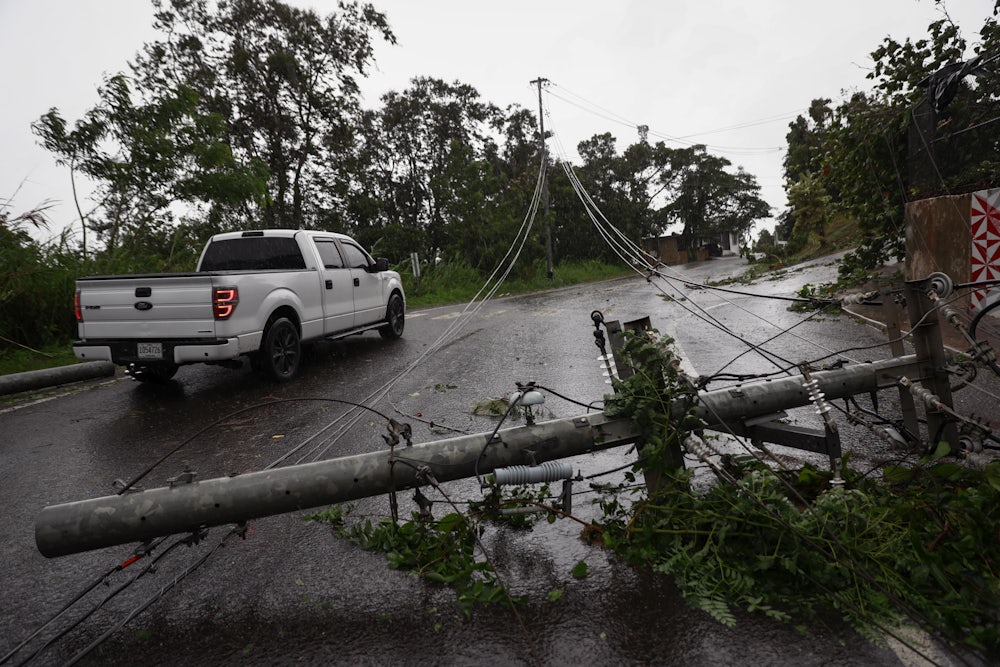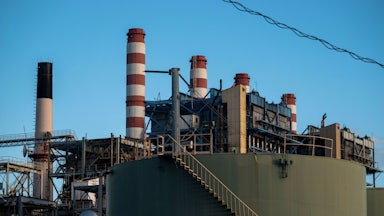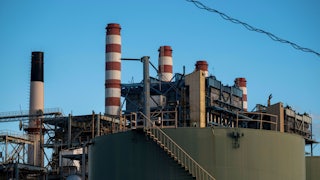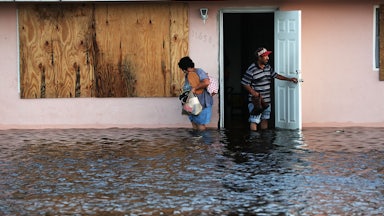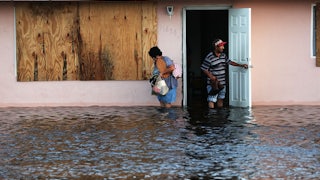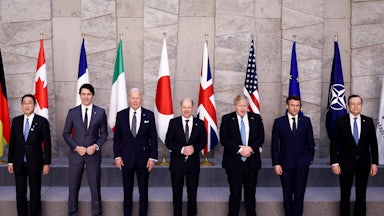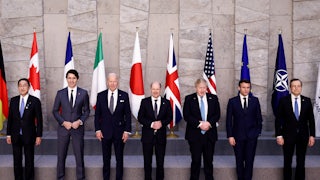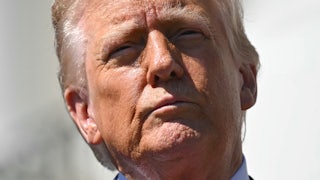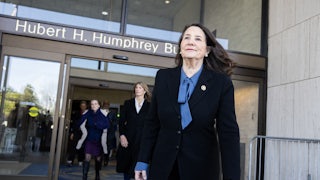Nearly five years to the day after Hurricane Maria left much of Puerto Rico without power for months, something eerily similar has now happened again. Hurricane Fiona, a Category 1 storm, swept through this past weekend causing an island-wide blackout. Nearly 1.2 million homes were without power as of Tuesday morning. How many more homes, hospitals, and businesses get the lights turned back on—and how quickly—will be largely up to LUMA Energy, the U.S-Canadian company that recently bought the right to handle the transmission and distribution of Puerto Rico’s electricity.
The privatization of Puerto Rico’s electricity was pitched as a panacea for the island’s troubled grid. But it hasn’t delivered on that promise so far. Instead, like any number of other privatization schemes supercharged after Maria, electrical grid privatization has been an invitation for companies to come make a profit off the provision of basic services.
That Fiona hit Puerto Rico so hard is a failure on multiple levels. Just $40 million of the $9 billion in federal funds meant to rebuild Puerto Rico’s grid since Maria has been spent. The damage caused by Fiona doesn’t appear to be as extensive as what Maria inflicted, which knocked out much of the island’s already fragile transmission and distribution infrastructure. This time, damage to transmission lines seems to be minimal, with the heaviest losses concentrated in the south and in the mountains. Still, outages have been longer since LUMA took over power lines from the public Puerto Rico Electric Power Authority, or PREPA, last June, and precious little progress has been made toward fixing structural issues.
Energy experts have long recommended that federal funds be used to create a more resilient grid that relies less on costly imported fossil fuels. That’s not just because of environmental concerns but also because of a simple mechanical problem: Electricity from fossil fuels needs to be generated at centralized power plants, a job that falls on PREPA as it still handles electricity generation. Most of the plants are in the south, meaning electrons need to be carried up via transmission lines over the mountainous center of the country to population centers in the north. Queremos Sol (We Want Sun), a platform for clean energy development and climate justice backed by a number of environmental and community groups and unions across the island, has pushed for a more decentralized and renewable grid that can be turned back on even when the grid endures massive damage. So far that hasn’t happened, even after the 2019 passage of a green energy law intended to bring more clean energy onto the grid.
Understanding why these expert-backed, popular reforms haven’t been enacted requires a longer view. Officially a territory, Puerto Rico is best understood as a colony of the United States, having been ceded to the U.S. by Spain as a result of the Spanish-American War in 1898. Like other colonies it has also long been a place for policymakers and business interests to test out new schemes. After a series of generous tax breaks for businesses expired in 2006, the island entered a prolonged depression that was compounded shortly thereafter by the global financial crisis. Successive governments borrowed money to stay afloat and fund basic services, eventually racking up more than $70 billion in debt. Exactly how that debt was acquired is still the subject of some controversy; critics have accused banks of engineering ways to exceed borrowing limits, charging steep underwriting fees. Among the biggest bondholders are distressed asset investors, or “vulture funds” that swoop in to buy up so-called trouble assets on the cheap in the hopes of extracting big payouts down the line through scorched-earth legal battles. Some of the same funds that have bought Puerto Rican debt have also bought up polluting fossil fuel assets across the globe that bigger companies have been eager to shed to appear more climate friendly.
Unlike companies or U.S. states that have trouble servicing their debts, Puerto Rico can’t formally declare bankruptcy. So the Fiscal Oversight and Management Board—known as “La Junta”—was imposed by Congress and the Obama administration in 2016 to oversee the debt restructuring process and the island’s finances, executing effective veto power over plans made by its democratically elected government. The legislation that created the board, known as PROMESA, doesn’t require most of its members to be from or living in Puerto Rico. Its chair is one of the intellectual architects of the board, law professor David Skeel Jr., who has consistently argued that indebted governments are better off having democracy taken away from them.
The model isn’t exactly new. Skeel and his fellow travelers took inspiration in part from the fiscal control board imposed by the state on New York City in the 1970s as a response to the fiscal crisis there, an early testing ground for sweeping neoliberal reforms executed in the name of fiscal responsibility. More recently, Michigan’s former Republican Governor Rick Snyder imposed emergency managers on mostly majority-Black cities facing financial distress. Among the members of La Junta is former Michigan budget director John Nixon, who was one of the officials who hired the emergency manager who urged engineers to keep repairs to Flint’s ailing water system to a minimum. Earlier this summer, the board sued the Puerto Rican government to stop it from implementing a law expanding private-sector employees’ vacation and sick time, overtime pay, and meal breaks, arguing it would slow economic growth.
Like structural adjustment packages imposed by the International Monetary Fund on low- and middle-income countries across the globe, La Junta promised to bring Puerto Rico back from the brink of financial ruin in exchange for a series of reforms, typically under the guise of cultivating a positive investment climate to restore better access to financial markets. Those recommendations have included mass privatizations, steep cuts to pensions and benefits, and a drastic shrinking of the public-sector workforce—frequently with the enthusiastic support of right-wing politicians there. The privatization push has been a breeding ground for grifters looking to make a quick buck. Before full privatization, PREPA’s leadership courted a series of disastrous private-sector contracts. The most high-profile was awarded to the novice Montana-based firm Whitefish Energy to rebuild power lines after Maria, though there were several others. As I reported in 2020, private equity billionaire and Milwaukee Bucks owner Wes Edens has built a business model around growing demand for methane gas in the Caribbean, including in Puerto Rico. New Fortress Energy, which Edens founded and runs as CEO, was awarded a $1.5 billion contract that left ratepayers to foot the bill for burning more expensive imported fuel that was, ironically, pitched as a means to make energy more affordable.
Anger at LUMA—already simmering—is now boiling over. In Fiona’s wake, calls have proliferated for Governor Pedro Pierluisi to cancel the company’s contract before November 30, after which the island could be saddled with a $1.5 billion penalty for severing ties. Public officials there are reportedly considering it, according to The Wall Street Journal.
The weeks, months, and years after Hurricane Maria saw companies descend on the island in search of lucrative contracts and cheap assets they could flip for a profit. In Fiona’s wake, the vultures might be circling again.
